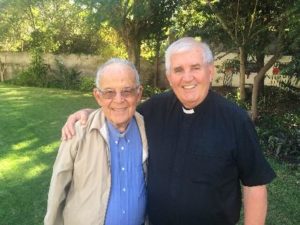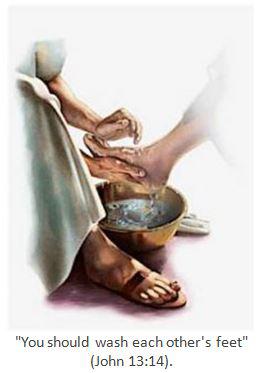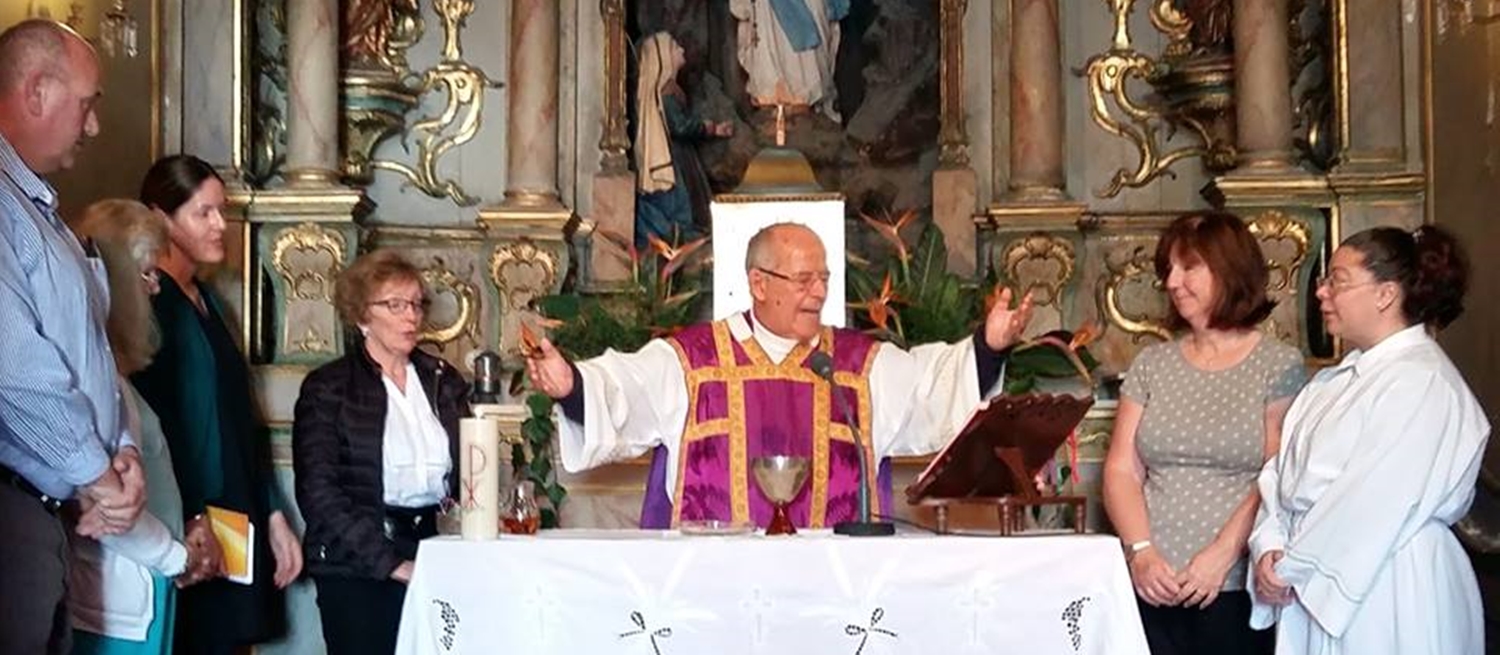(bernardinodandrade@gmail.com)

Father Bernadino with Father Michael
My friend was a builder. It was during the month of November, on a rainy day, when he invited me to see a piece of land where he was planning to build a beautiful house.
The only thing I could see under my feet was mud, some rocks where I could put my feet and small puddles of water. Everything was the best definition of a mess. It was really messy and muddy. But my friend didn’t care about the mess. He didn’t even apologize for taking me to “nowhere” just to make my shoes dirty and show me an invisible plan.
But John was seeing things with different eyes. He had a dream. And he took me to that place to show me his invisible dream. In his dream, he could see perfectly where the kitchen was going to be, where the living room was going to be, where the bedrooms were going to be. That beautiful house was already built in his dream, and he knew all the details of what was going to become a beautiful piece of heart. It was with a smile that on a muddy piece of land he told me about his dream. He had no doubts that a beautiful and imponent house would be in that same place very soon.
This story of my friend reminds me of the Gospel of John, chapter 17. In this messy world, talking with His Father, Jesus talks about his most important dream that is: “…that they may be one as we are one… that they become completely ONE” (Jo. 17: 22-23). This was the biggest dream of Jesus, that “WE WILL BE ONE”.
The tragedy is that we, human beings, have the power to sabotage that dream of Jesus.
The Body of Jesus is hurting with many divisions. On the other hand, many people are making small efforts to heal those wounds and those divisions
Today we have the privilege of welcoming in our Catholic Community of Penha de França, Father Michael Jarman, the Chaplain of the Anglican Church in Funchal, to share with us the Word of God. We thank him and congratulate him for this little effort to heal the wounds of the Body of Jesus by bringing Catholics and Anglicans closer to each other and closer to God.
Thank you, Father Michael.
Love and Peace,
Fr. Bernardino Andrade
Now a few words from Fr. Michael …
Hope
Christians approach the season of Christmas with a sense of hope. In Scripture, according to the Hebrew And Greek words translated by the word ‘hope’ and according to the biblical usage, hope is an indication of certainty. ‘Hope’ in Scripture means a strong and confident expectation. Though archaic today in modern terms, hope is akin to trust and a confident expectation.
As a Christian Priest, I have a hope not just at Christmas but throughout the whole year that we can be more united in our beliefs and worship, because in unity there is strength and endurance. In the world inwhich we live, where there is so much need, poverty and secularism, it is our duty as Christians to be strong, to speak out against injustices of all kind and to follow as closely as possible the teachings of our Lord.
In addition, whether you believe in a God or no God at all, it is natural to have a sense of hope for family and friends as the old year ends and a new one begins, a hope of wellbeing for those we love.
Hope is important because it can make the present moment less difficult to bear. If we believe that tomorrow will be better, we can bear a hardship today.
And for those who are not Christians and perhaps don’t believe in any God whatsoever there must be a feeling of hope, if for nothing else then for the planet, as it faces the effects of global warming and how that will affect our children, our grand-children and generations to come.
Hope can be a powerful force. There’s no actual magic in it, but when you know what you hope for most and hold it like a light within you, you can make things happen, almost like magic.
My other hope as a Priest is that more people who don’t believe in God will come to know and love Him. As Christians we can facilitate this by showing the love of Christ in our everyday lives. We can’t convert people to Christianity, the Holy Spirit does that, but we can facilitate it by our own example.
It is my hope, wherever you are, whatever you do, that you will, by God’s grace, remain safe and happy now and for the coming year.
Father Michael Jarman
Holy Trinity Anglican Church
Funchal



